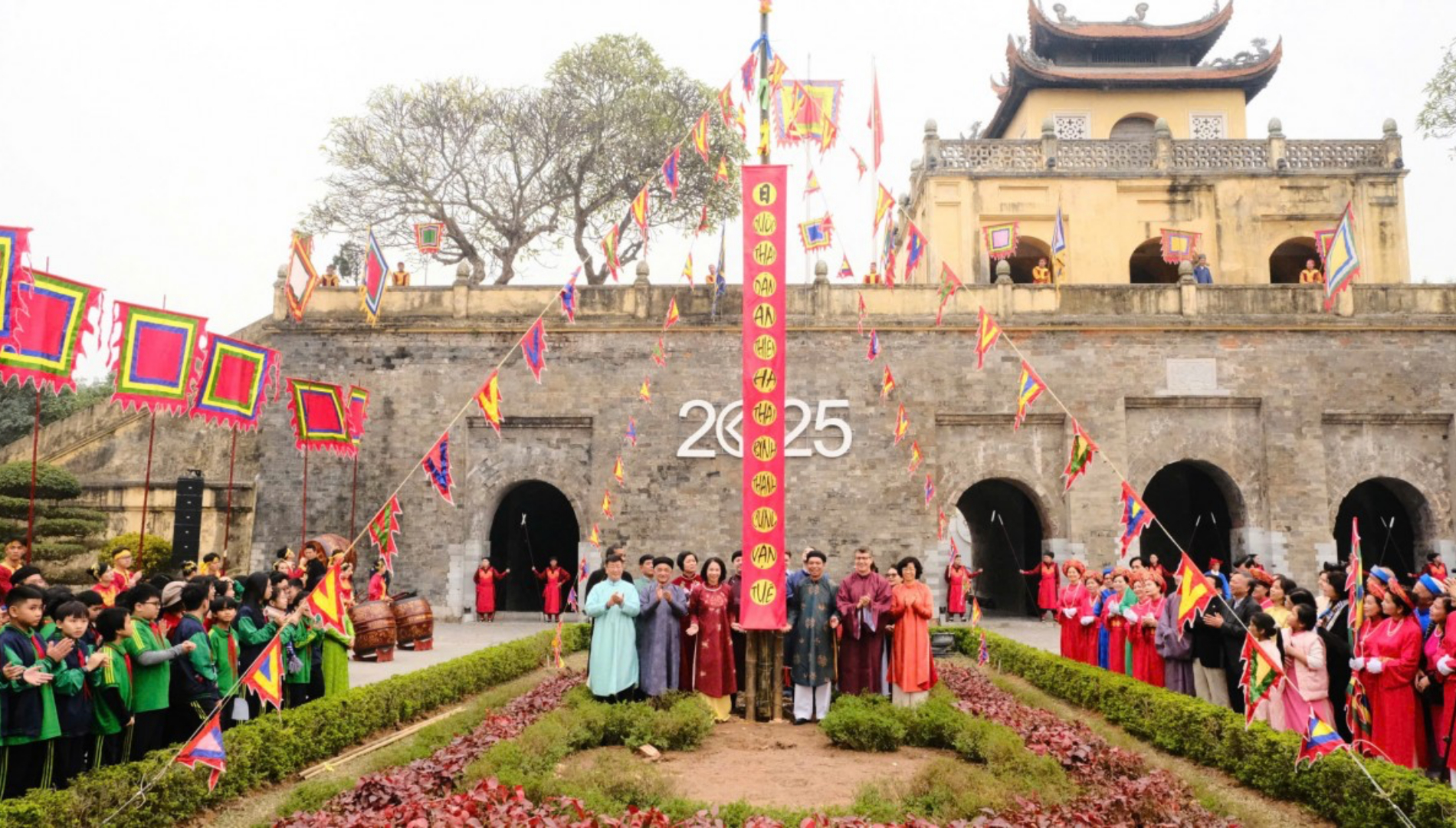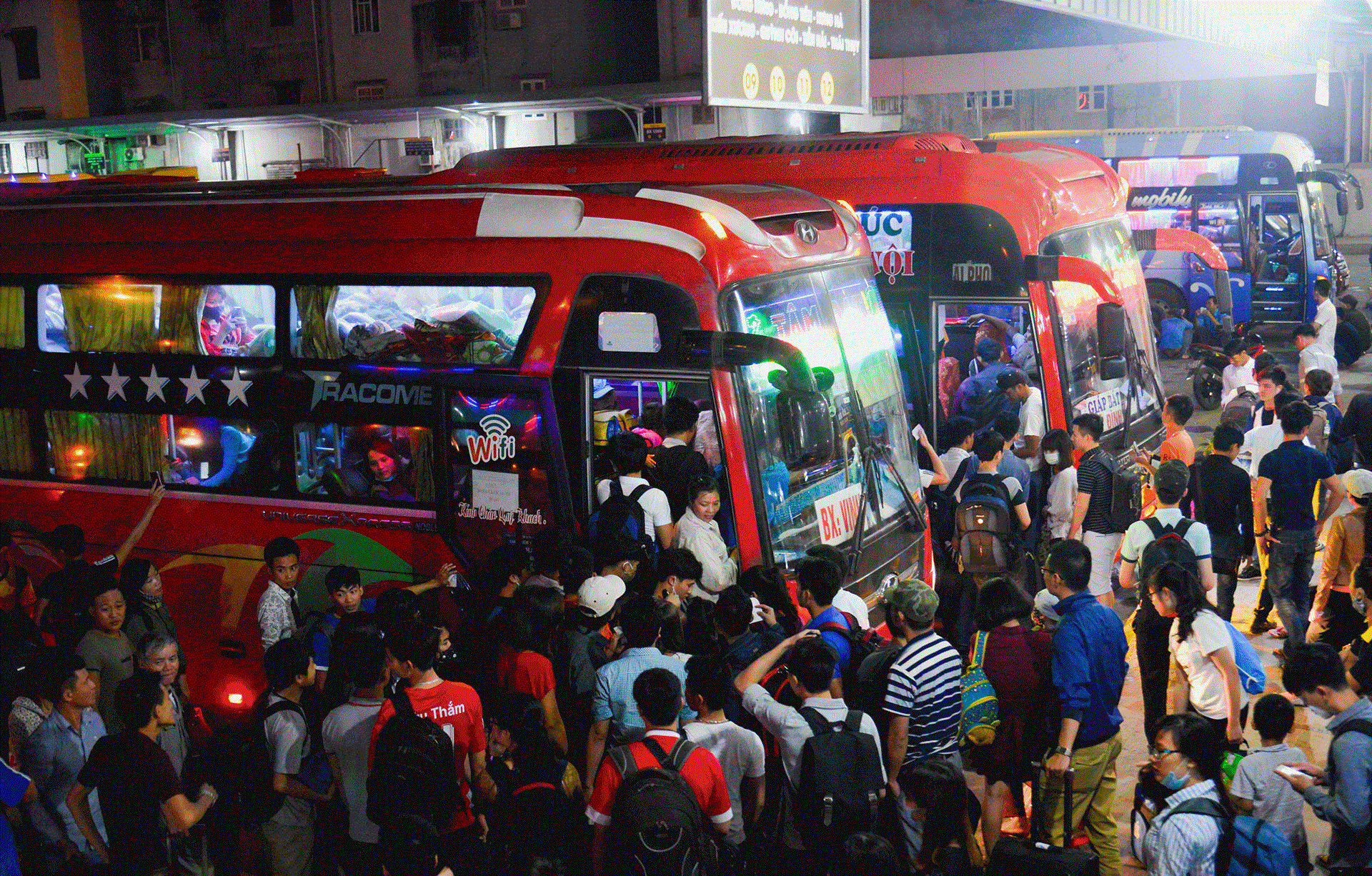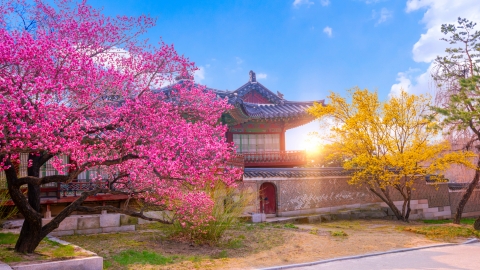Thang Long Imperial Citadel, the heart of the thousand-year-old capital of Thang Long - Hanoi, once again came alive with a program recreating the unique Lunar New Year rituals of the ancient court. Recently, the program reenacted the rituals of the Lunar New Year that once took place in the ancient Thang Long palace, expressing the desire for national prosperity and peace and well-being for the people, bidding farewell to the old year and welcoming the new.
According to Nguyen Thanh Quang, Director of the Thang Long-Hanoi Heritage Conservation Center, the "Farewell to the Old, Welcome to the New" ceremonies recreate unique folk and royal customs and rituals. These activities contribute to preserving the good customs and traditions of our ancestors, reviving the essence of national culture, and educating the younger generation about traditions.
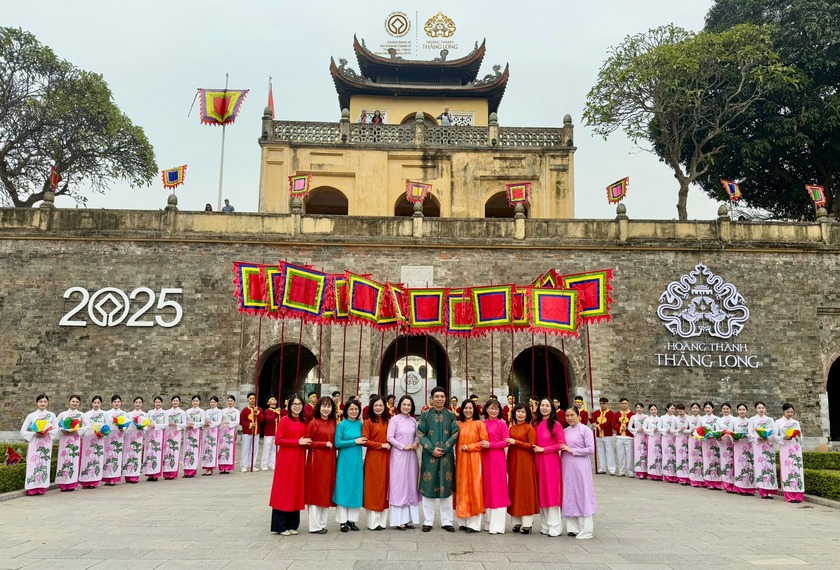
In the ancient Thang Long Imperial Palace, during the Lunar New Year, solemn and dignified ceremonies were held to reflect the prosperity of the nation and the peace and well-being of the people.
To promote the value of typical Tet rituals of the royal court as well as traditional folk Tet customs, this year, in addition to traditional activities such as erecting the Tet pole and releasing carp, the Thang Long - Hanoi Heritage Conservation Center is organizing the reenactment of some rituals such as the Calendar Offering Ceremony and the Changing of the Guard Ceremony in a theatrical format.
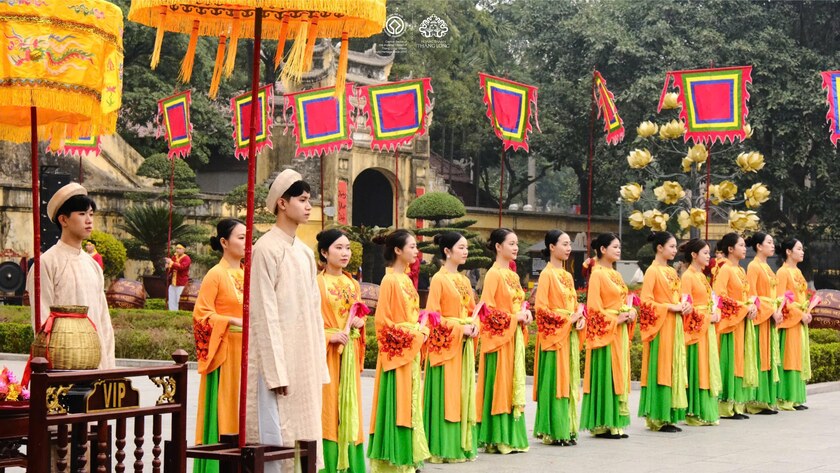
The Thang Long - Hanoi Heritage Conservation Center is organizing a performance of the "Farewell to the Old Year, Welcome to the New Year" ceremony to recreate unique folk and royal rituals and customs.
According to Associate Professor Tran Duc Cuong, President of the Vietnam Historical Science Association, Tet Nguyen Dan (Lunar New Year) is the biggest and most sacred traditional festival of the year for the Vietnamese people. It marks the transition between the old year and the new year, a time to close the chapter on the past year and welcome the new year with joy and hope. This is one of the festivals with many unique customs and deeply rooted in the indigenous culture of the Vietnamese people throughout Vietnam.
The erection of the New Year's pole is an indispensable ritual during the Lunar New Year in Vietnam. The New Year's pole symbolizes spring, carrying auspicious meanings and blessings. When the New Year's pole is erected in the Imperial Palace, the people also begin to erect poles in front of their homes.
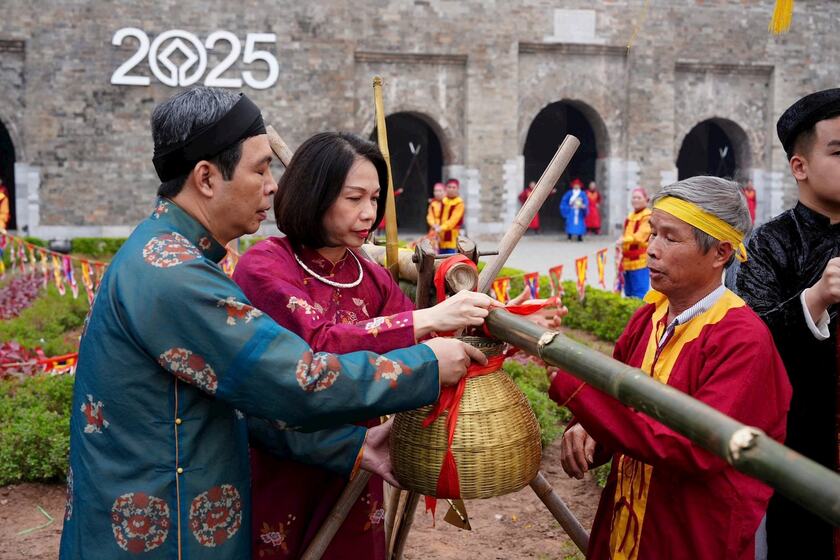
Particularly in the ancient capital city with a thousand years of cultural heritage, the culture of the Lunar New Year is even richer and more distinctive, a convergence and intermingling of court culture and traditional folk culture.
The ceremony of presenting and distributing the calendar reflects the importance the feudal court placed on calendar making, as well as its concern for weather phenomena, climate, auspicious days and times, and favorable natural conditions to serve agricultural production and the daily lives of the court and the people.
The Spring Ox Offering Ceremony is an important ritual meticulously prepared by the imperial court, performed on the first day of spring with the wish for favorable weather, a bountiful harvest, and a prosperous and abundant spring.
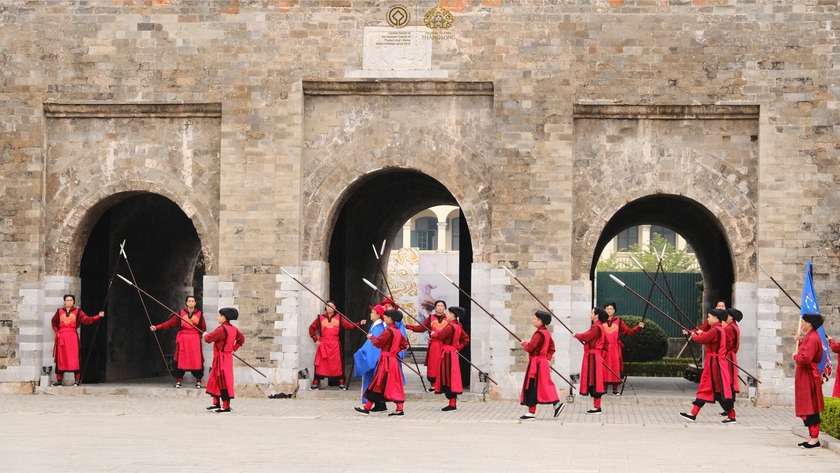
The rituals of bidding farewell to the old year and welcoming the new spring, with wishes for peace, joy, and family reunion, include the worship of the Kitchen God, the calendar offering ceremony, the pole-raising ceremony, etc.
The Lunar New Year's Day ceremony is the first grand court ceremony of the imperial court, held on the first day of the Lunar New Year. This is a ceremonial gathering, an occasion for the king, the royal family, and all the officials to meet on the first day of the new year, wishing the king longevity and the people prosperity and happiness. Provinces throughout the country submit petitions to the king. On this occasion, the king also hosts a banquet and bestows spring rewards upon the officials.
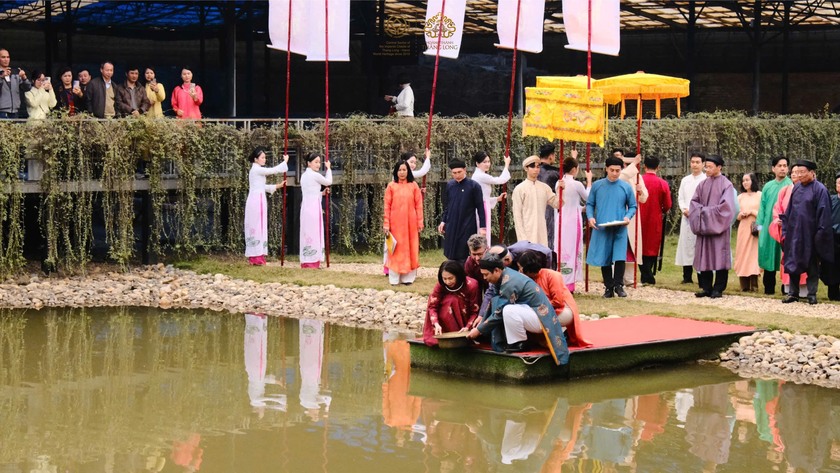
These are traditional court rituals from the past, marking the beginning of a series of ceremonies performed by the king and the court during the Lunar New Year, which takes place from the end of the twelfth lunar month to the fifteenth day of the first lunar month.
As part of the "Farewell to the Old Year, Welcome to the New Year" series of events, the Thang Long - Hanoi Heritage Conservation Center is also organizing a series of activities to celebrate the traditional Tet holiday, such as: an exhibition space titled "Tet of the Past - Tet during the Subsidy Period" (from January 20th), recreating the traditional Tet of Vietnamese people in the 70s and 80s of the 20th century; an exhibition space titled "Royal Court Tet Rituals in Spring" held in building N14 on January 20th. Special puppet shows will be performed for visitors from January 30th to February 2nd (i.e., from the 2nd to the 5th day of the first lunar month) at the following times: 9:30 AM, 10:30 AM, 11:30 AM, 3:00 PM, and 4:00 PM.

 VI
VI EN
EN



